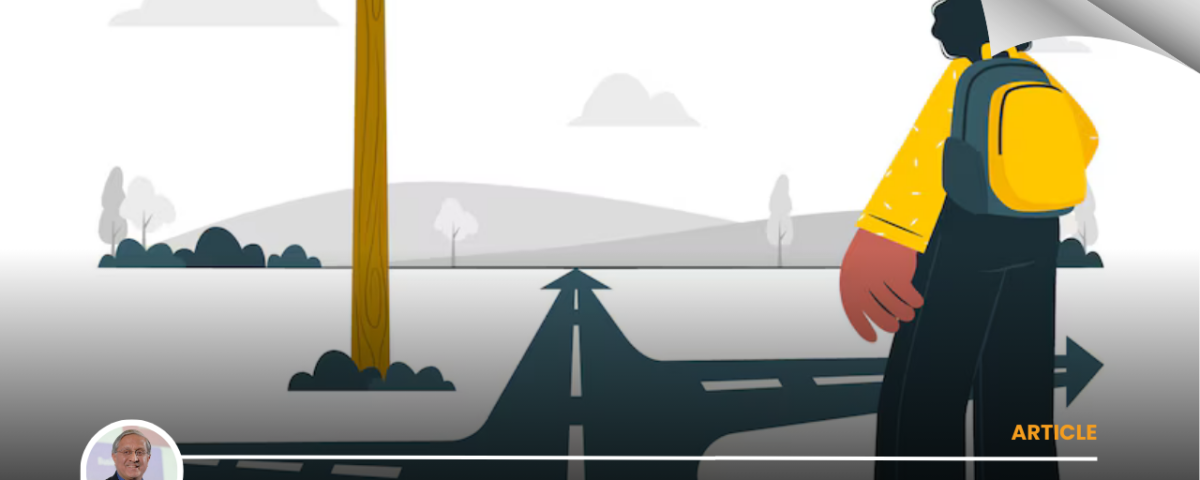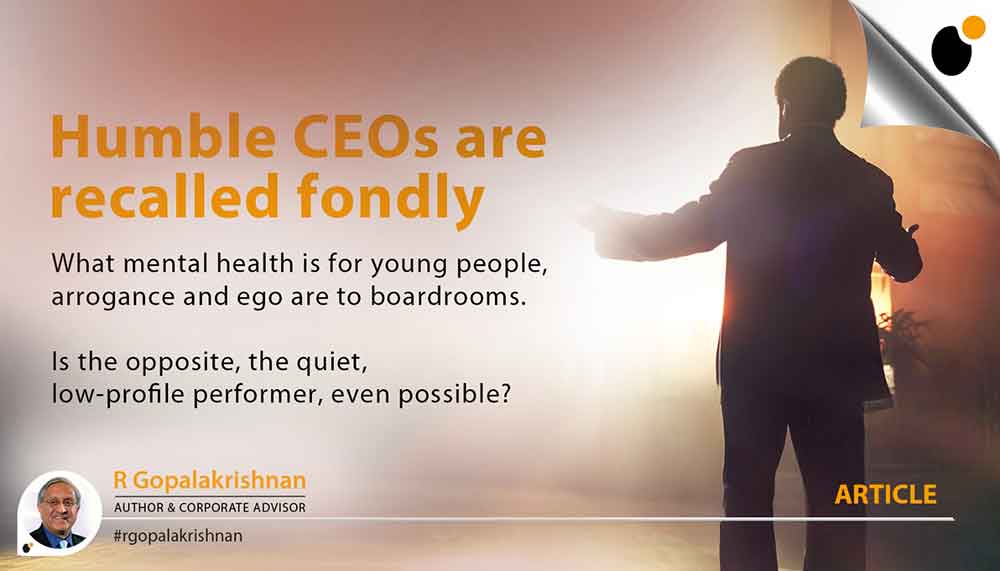11th December 2006, ECONOMIC TIMES
While reflecting about the column on careers and business life, I asked myself what purpose could be served by such an effort. A simple idea, supported by a simple story, could be a positive format for learning and reflection and practising managers could find that useful.
Over the last two months since this column began, over 150 messages have been received at the e-mail ID mentioned below. Each one has been responded to individually.
While most comments have been appreciative of the ideas in the column, one had a reprimanding tone. Its author lamented that ‘management jargon and braggarts have taken over; it is time to revert to the real management guru, Swami Vivekananda.’ A valid comment!
A recurrent comment has been, “I agree with you, but is it practical to follow? Your view is for the lucky few, not for all e.g. you write ‘work with courage.’ However, I need the job badly, so I cannot afford to be courageous and risk the loss of the job. You write ‘enjoy what you do.’ Actually, I detest what I do, but I need the job badly. I am not so lucky as some others etc. etc…” Since all of us do periodically experience such feelings, it is easy to empathize with those thoughts.
What then is the way to reconcile these two apparently opposite things: an idea that appeals with an action that carries a big risk? Aldous Huxley wrote, “Experience is what a man does with what happens to him”.
In your life and career, you cannot choose what will happen to you. What has to happen will happen. But you can choose how to respond when whatever has to happen to you happens—this has been emphasized in ancient Indian philosophy.
Therefore, each of us has does have free choice, and we have to live with the consequences of the choice we have exercised. If you can do that, and be mentally at peace, then may be it is alright. Thereafter, you should not grumble about God or fate, or express destructive dissatisfaction with your condition, irrespective of whether you are vice-president, a BPO executive or even a peon.
Driver Vincent drove a car at Bangalore. He was exceptionally cheerful. Whether it was midnight duty or early morning duty, he was able, willing and infectiously enthusiastic. Once I apologized for imposing successive days of heavy work with long hours. He ended up narrating his story.
His father worked in a car garage at Mangalore. There were many mouths to feed in the family, yet his father insisted that he should study. Vincent was so infatuated by car mechanics that he would loiter around the garage as a helper rather than complete his school homework. He told his father that he would like to become a driver rather than study.
His father was disappointed. “You should study more. If something happens to me, who will take care of your sisters?” he often said. However, Vincent chose the option of indulging in his passion rather than continue his studies. That is how he drifted into driving.
“But surely all these long hours must make you sometimes regret it,” I persisted. “Not really, after all, it was I chose to become a driver, so why feel regret? Even if I do feel so sometimes, I have to dismiss it. And, sir, I do get paid overtime and that helps me to dream of making my son an engineer. My father would be proud to see his grandson as an engineer,” Vincent replied in a matter-of-fact way.
Recently, Vincent called to announce his daughter’s marriage. He chirped, “Sir, incidentally, my son has graduated in Mechanical Engineering and is going to work in a software company. I am sharing my joy because you used to enquire. I wish my father was around. He would think well of his grandson.”
Vincent took responsibility for his decision and learned to live with the consequences with great cheer.



